I. Was Audrey Hepburn a Geisha?
At the start of Breakfast at Tiffany’s (1961), a lone yellow taxi coasts through the empty canyon of Fifth Avenue, stopping in front of Tiffany & Co., that ageless symbol of luxury. A woman steps from the car, sunglasses shielding her from the unwanted clarity of the early morning light; she is Holly Golightly, a woman of the night.
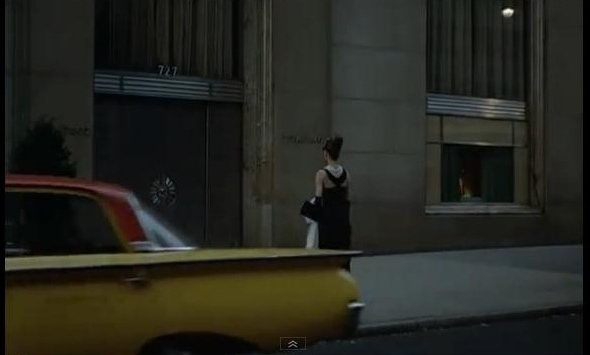
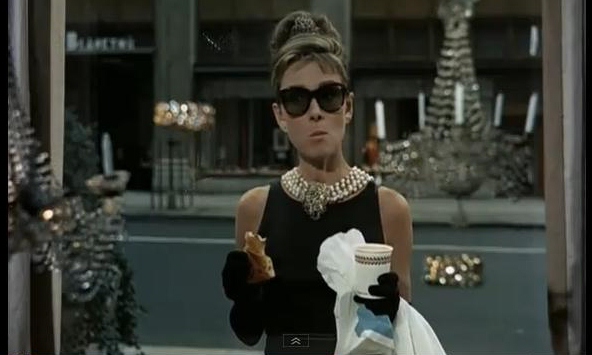
At the start of the Japanese film Ginza Love Story 銀座の恋の物語 “Ginza no Koi no Monogatari” (1962), the Hattori Clock Tower strikes 6 a.m. while a man pulls a jinrikisha cart 人力車 through the mostly empty streets of Ginza, Tokyo’s luxury shopping district. The passenger, a geisha 芸者, barks commands, hoping to return home before the sun completes its rise. She too is a woman of the night.
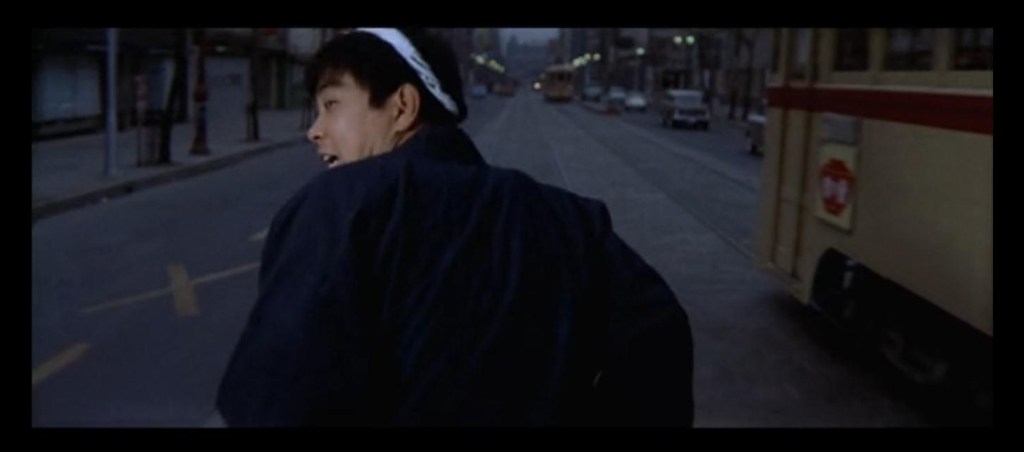
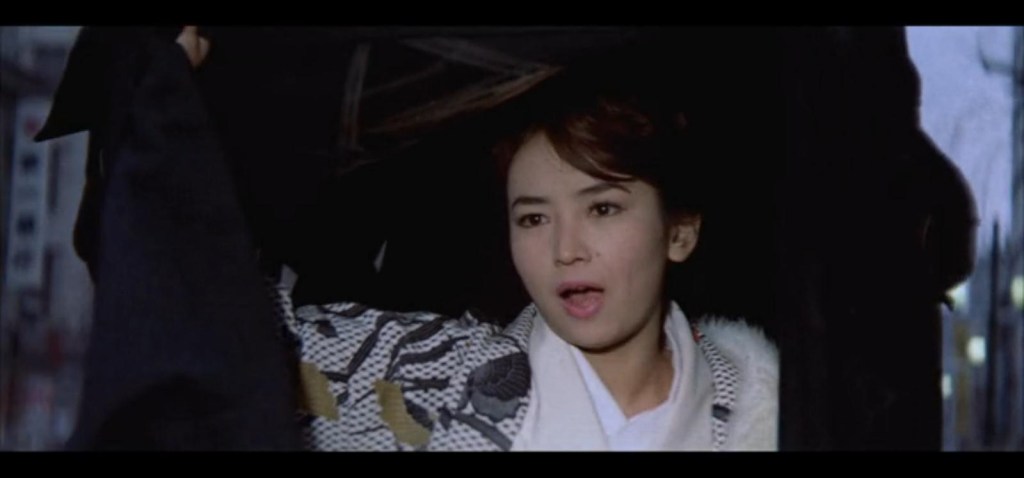
Is Ginza Love Story 銀座の恋の物語 the Japanese Breakfast at Tiffany’s? Not particularly. But some similarities tempt me to push the comparison further. Both films portray protagonists struggling to make ends meet in the big city, sometime resorting to illegal means. Both films depict the energy and excitement of city living. And both films make liberal use of a schmaltzy love song (Moon River for Breakfast at Tiffany’s, and Ginza Love Story 銀座の恋の物語).
II. You had me at “eeeeeeeeeh”
But let’s forget about the film…which is exactly what happened to me at the 23:15 mark when Chiemi Eri 江利チエミ belts out the opening note of a song I simply call “the nightclub song”. Her performance is at once shy and confident, and quite humorous. See below for the clip that made me fall in love with her:
I stopped watching the film and wanted to listen to more of this terrific singer.
Chiemi Eri was a very popular jazz/pop singer in post-war Japan. She began singing in nightclubs for the American occupation forces, causing her to learn American pop and jazz tunes. According to Wikipedia, a G.I. named Kenneth Boyd ケネス・ボイド gave Chiemi a recording of Tennessee Waltz, a song she would later record at age 14 (or 15) and which would bring her early fame. For a nice blog entry about Chiemi Eri and this era, see: Reasons to Love: Chiemi Eri & the Tokyo Cuban Boys.
This other song from Ginza Love Story ain’t too bad either.
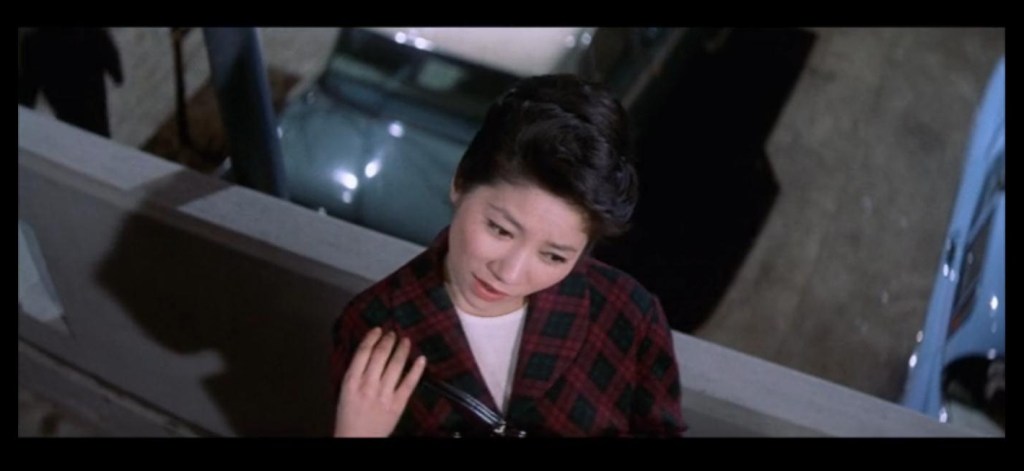
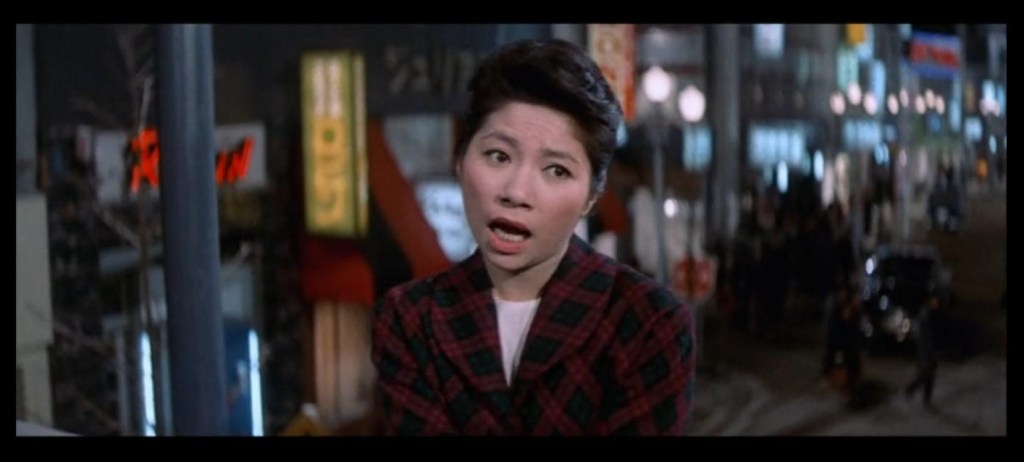
OK, I’ll shut-up. Writing about music has got to be the hardest and least productive activities I can engage in. But please check her out. One comment on youtube describes her as the Japanese Ella Fitzgerald. I think of her more as the Japanese Peggy Lee, but in the recording of “Carioca” included below, the comparison to Ella is not unwarranted.
Here are some of the better recordings available on YouTube:
“Vaya con Dios” 「ヴァイヤ・コン・ディオス」 Very pleasant song.
“Come on-a My House” 「家へおいでよ」 Try to get this song out of your head.
“Jambalaya” 「ジャンバラヤ」 You’ve never heard Hank Williams like this.
“Carioca” 「キャリオカ」 Amazing scat singing.
More about Chiemi Eri 江利チエミ
- Chiemi Eri as Eliza Doolittle: ‘My Fair Lady’ in Japan, 1963
- 江利チエミ entry on Wikipedia (Japanese)
- Chiemi Eri on the Internet Movie Database (IMDB)
About the film:
- 銀座の恋の物語 / Ginza Love Story / Love in Ginza / Love Story in Ginza / Lovers of Ginza / Ginza Koi No Monogatari / The Love Story of Ginza (1962)
- (This film’s theme song is a traditional karaoke duet; search YouTube for “Ginza Koi No Monogatari”)
- Free audio at the Internet Archive
- Japanese movie database
- ‘Love in Ginza’ 銀座の恋の物語-DVD Amazon (Japan)
- Today the “Ginza Love Story” Monument 「銀座の恋の物語」記念碑 (source) commemorates the film, along a busy Ginza sidewalk (map):

More stills from the film:


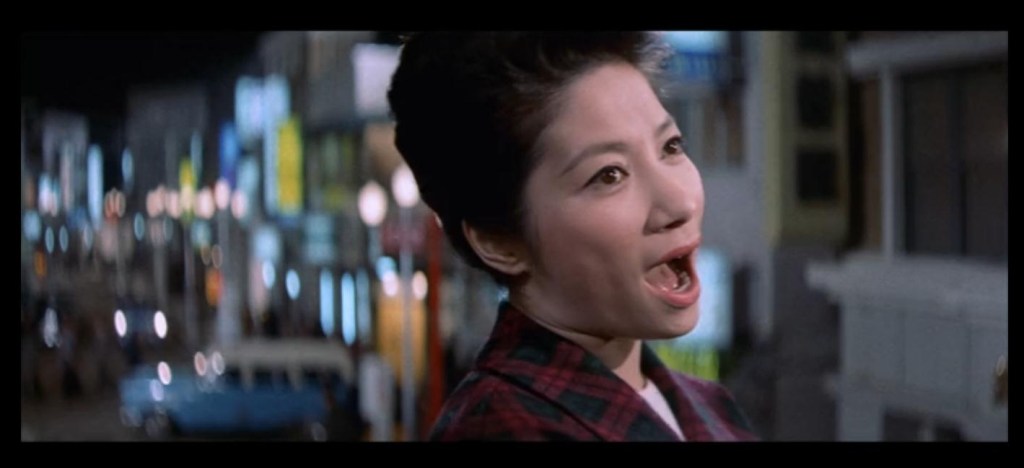
Other films from Director Koreyoshi Kurahara 蔵原惟繕:
- I Am Waiting 俺は待ってるぜ “Ore wa matteru ze” (1957) / see also: You can always depend on alcohol (1957 Japan)
- The Warped Ones 狂熱の季節 (1960)
- Intimidation ある脅迫 Aru kyōhaku (1960)
- I Hate but Love (1962)
- Black Sun 黒い太陽 “Kuroi taiyō” (1964)
- See page: Japanese films
See also:
[…] Chiemi Eri 江利チエミ, my Ginza Love Story 銀座の恋の物語 […]
[…] Chiemi Eri 江利チエミ, my Ginza Love Story 銀座の恋の物語 […]
[…] 2012, when I first discovered Eri Chiemi, it was via a movie whose opening sequence reminded me of the early-dawn scene from Breakfast at […]